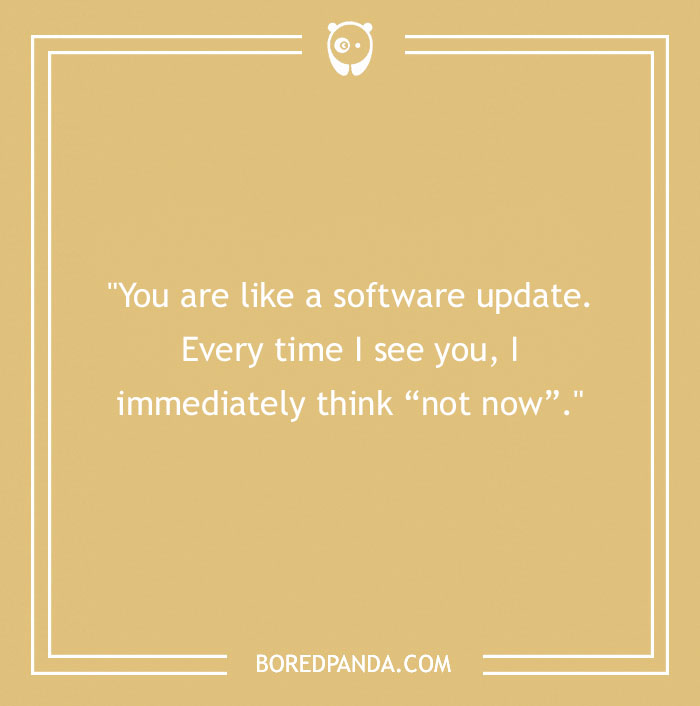Fat Jokes To Make Someone Cry: The Dark Side Of Humor
Let’s be real for a second here. Fat jokes to make someone cry are not just about laughter. They’re about hurt, pain, and the impact of words that can linger long after the punchline fades. You might’ve heard these jokes before—maybe even laughed at them once or twice. But have you ever stopped to think about the person on the receiving end? The one who feels like they’re being stripped of their dignity, all in the name of a quick laugh? Yeah, it’s heavy stuff. And that’s exactly why we’re diving into this topic today.
This isn’t just about humor; it’s about understanding the weight of our words. In a world where jokes are often thrown around without much thought, it’s crucial to pause and reflect. Because when you use humor as a weapon, it can leave deep scars. So, buckle up, because we’re about to explore the darker side of fat jokes and why they’re far from harmless.
Now, before we get into the nitty-gritty, let’s establish something important. This article isn’t here to shame anyone for laughing or to play the blame game. Instead, it’s about awareness, empathy, and creating a space where we can all grow together. Sound good? Great. Let’s dive in.
Read also:What Did Barry Weiss Do For A Living Unveiling The Career Journey Of A Remarkable Figure
Understanding Fat Jokes: What Are They Really?
Fat jokes, at their core, are jokes that mock or belittle people based on their weight. They’re often disguised as lighthearted banter, but make no mistake—they carry a heavy punch. These jokes thrive on stereotypes and societal biases, painting overweight individuals as lazy, unhealthy, or even deserving of ridicule. And while some may argue that they’re “just jokes,” the truth is far more complex.
Here’s the kicker: fat jokes aren’t just about making someone laugh. They’re about reinforcing harmful narratives that perpetuate stigma and discrimination. It’s not just about the words themselves—it’s about the culture they create. A culture where being overweight is seen as fair game for ridicule, where people are stripped of their humanity in the name of a cheap laugh.
Why Do People Use Fat Jokes?
So, why do people resort to fat jokes in the first place? The reasons are as varied as the people who tell them. Some do it for attention, others for validation, and a few might even think they’re being funny. But at the end of the day, it all boils down to one thing: a lack of empathy. When you make someone the butt of a joke because of their weight, you’re choosing to ignore their feelings, their struggles, and their humanity.
- Attention-seeking: Some people use fat jokes to grab the spotlight, thinking that making others uncomfortable will make them look edgy or clever.
- Validation: Others might use these jokes to fit in with a group or to gain approval from peers who share similar views.
- Misguided humor: A few might genuinely believe that fat jokes are funny, unaware of the harm they cause.
The Impact of Fat Jokes on Mental Health
Now, let’s talk about the real impact of fat jokes. It’s not just about hurt feelings or a bad mood; it’s about mental health. Studies have shown that experiencing weight-related teasing can lead to increased anxiety, depression, and even eating disorders. That’s right—what might seem like a harmless joke can have serious consequences for the person on the receiving end.
Take this into account: overweight individuals are already dealing with societal pressure, body shaming, and a constant battle to fit into a world that often doesn’t accommodate them. When you add fat jokes to the mix, you’re essentially pouring salt into an already open wound. It’s not just about the words—it’s about the cumulative effect of years of being made to feel less than.
How Fat Jokes Contribute to Stigma
One of the biggest issues with fat jokes is how they contribute to the stigma surrounding obesity. By making weight a punchline, we’re reinforcing the idea that being overweight is something to be ashamed of. This stigma doesn’t just affect how others perceive overweight individuals—it affects how they perceive themselves.
Read also:Worlds Longest Snapchat Streak The Ultimate Guide To Streak Mastery
- Self-esteem: Constant exposure to fat jokes can lead to a severe drop in self-esteem, making individuals feel unworthy or unlovable.
- Body image: These jokes can also distort body image, leading to unhealthy habits and behaviors as people try to conform to societal standards.
- Discrimination: Fat jokes normalize discrimination, making it easier for people to justify unfair treatment based on weight.
Breaking the Cycle: How to Respond to Fat Jokes
So, what can you do if you find yourself in a situation where someone is telling fat jokes? The key is to respond with empathy and assertiveness. Here are a few tips to help you navigate these tricky conversations:
- Call it out: Politely but firmly let the person know that fat jokes are not okay. You don’t have to be aggressive—sometimes a simple “Hey, that’s not cool” can go a long way.
- Shift the focus: Redirect the conversation to something more positive or neutral. This can help take the sting out of the joke and prevent it from escalating.
- Offer education: If the person seems open to it, take the opportunity to educate them about the impact of fat jokes. Share articles, statistics, or personal stories to help them understand the harm they cause.
The Power of Empathy
Empathy is the key to breaking the cycle of fat jokes. When you take the time to understand someone else’s perspective, you’re less likely to use humor as a weapon. It’s about seeing the person behind the punchline—their struggles, their triumphs, and their humanity. And when you do that, you’ll find that the urge to make fat jokes fades away.
Alternatives to Fat Jokes: Finding Funny Without the Harm
So, if fat jokes are off the table, how do you find humor that doesn’t hurt? The good news is, there are plenty of ways to be funny without resorting to harmful stereotypes. Here are a few ideas to get you started:
- Self-deprecating humor: Laughing at yourself can be a great way to connect with others, as long as you’re not being too harsh on yourself.
- Situational humor: Finding humor in everyday situations is a great way to bond with others and create shared experiences.
- Wordplay: Puns, rhymes, and clever wordplay can be hilarious without crossing any lines.
Why Positive Humor Matters
Positive humor isn’t just about avoiding harm—it’s about building connections. When you use humor to uplift others, you’re creating a space where everyone feels welcome and valued. And that’s a pretty powerful thing. So, the next time you’re tempted to tell a fat joke, take a moment to consider the alternatives. Trust me, your audience will thank you for it.
Addressing the Critics: Why Fat Jokes Aren’t Harmless
Of course, not everyone agrees that fat jokes are harmful. Some people argue that they’re just jokes, that people should have a sense of humor, or that they’re not a big deal. But here’s the thing: just because someone doesn’t feel hurt doesn’t mean the joke isn’t harmful. The impact of fat jokes isn’t always immediate or obvious—it can take time to manifest, and it can vary from person to person.
Think about it this way: if you saw someone being bullied for their weight, would you stand by and do nothing? Probably not. So why is it okay to laugh when someone is being bullied through humor? It’s the same principle at play here.
The Role of Society in Shaping Humor
Society plays a huge role in shaping what we find funny. For years, fat jokes have been normalized in media, movies, and even everyday conversations. But just because something is common doesn’t mean it’s right. It’s up to us to challenge these norms and create a culture where humor is inclusive and respectful.
Creating a Kinder World: The Future of Humor
As we move forward, it’s important to remember that humor doesn’t have to come at the expense of others. By choosing to be kind, empathetic, and inclusive, we can create a world where laughter brings people together instead of tearing them apart. It’s not always easy, but it’s worth it.
So, the next time you’re tempted to tell a fat joke, take a moment to think about the impact it might have. Ask yourself: is this really funny, or am I just using someone else’s pain as a punchline? Chances are, the answer will lead you in the right direction.
Call to Action: Be the Change
Here’s the thing: change starts with us. It starts with the choices we make, the words we use, and the actions we take. So, I’m asking you to be the change you want to see in the world. Challenge fat jokes when you hear them. Educate others about their impact. And most importantly, choose kindness every single day.
Conclusion: Let’s Laugh Together, Not at Each Other
In conclusion, fat jokes to make someone cry are far from harmless. They’re a reflection of societal biases, a lack of empathy, and a failure to see the humanity in others. But the good news is, we have the power to change that. By choosing positive humor, by standing up for what’s right, and by being kind, we can create a world where laughter brings people together instead of tearing them apart.
So, what will you choose? Will you be part of the problem, or will you be part of the solution? The choice is yours, and it starts with the next joke you tell. Let’s make it count.
Daftar Isi
- Understanding Fat Jokes: What Are They Really?
- Why Do People Use Fat Jokes?
- The Impact of Fat Jokes on Mental Health
- How Fat Jokes Contribute to Stigma
- Breaking the Cycle: How to Respond to Fat Jokes
- Alternatives to Fat Jokes: Finding Funny Without the Harm
- Why Positive Humor Matters
- Addressing the Critics: Why Fat Jokes Aren’t Harmless
- The Role of Society in Shaping Humor
- Creating a Kinder World: The Future of Humor
Article Recommendations


